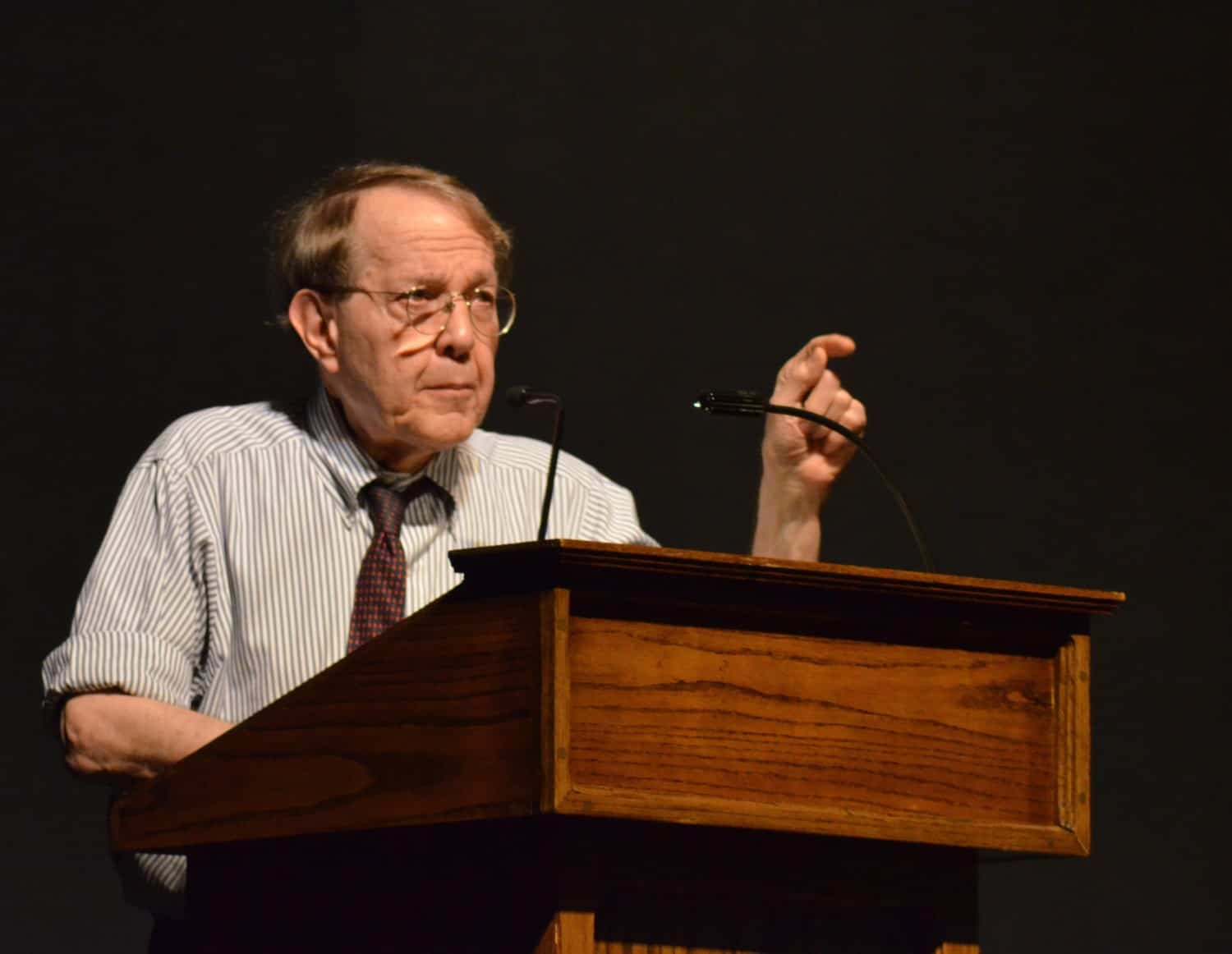Jonathan Kozol, award-winning education writer, advocate for equitable public education, and a former teacher, said the inequalities in public education that existed when he wrote Savage Inequalities in 1991 are still present today. Kozol delivered a message at Duke University titled, “Savage Inequalities in the Public Schools of a Divided Nation: The Challenge for Courageous and Inspired Teachers in the Wake of Ferguson and Charlottesville.”
“I wish I could stand here tonight and tell you there’s been dramatic progress…but it wouldn’t be the truth,” he said. “The savage inequalities in funding between the wealthy and poor districts in America have not diminished over the years.”
Kozol said the biggest challenge to equality in public education today is not a group of bigots who march in white pride parades, but what he calls “the quiet equanimity of decent people.” These are ordinary people who let the issues in public education continue year after year.
Before Kozol became an education thinker, he was on track for a distinguished career in academia. But he left that path to move into a poor, predominantly black neighborhood in Boston where he became a fourth-grade teacher.
“I would have done it if it weren’t for extraordinary events that swept the political horizon of the nation,” he said of abandoning his career in academia.
It was 1964, and thousands of people were going to Mississippi to register African-Americans to vote. Ahead of them went three young people who were scouting out locations to set up voter registration. They disappeared. Kozol said African-American activists had been disappearing in the country for years, and nobody paid attention. But the three young people were a mixture of races, and the nation took notice. Eventually the bodies of the three were found. They had been murdered by the Ku Klux Klan.
“That event somehow changed my life forever,” Kozol said.
He had never been political, but that night he drove into the black part of town and asked an Episcopal priest what he could do. The priest suggested he become a teacher. And Kozol’s future was set.
As a teacher, Kozol witnessed inequalities, including subpar resources in his own schools. He was even fired from Boston Public Schools for teaching the poem “Dream Deferred” by Langston Hughes. He eventually left teaching but never stopped his focus on education. He studied issues plaguing children and public schools, and documented the inequalities he continued to find. In his 2005 book, “The Shame of the Nation,” he wrote about conditions in 60 public schools he studied and said that inner city children were more racially isolated than they had been since before Brown v. Board of Education.
At Duke, Kozol also focused on charter schools and the danger he said they pose.
“There are some good charter schools around the country,” he said. “They’re some innovative ones, and there are a few that are actually progressive in their pedagogies.”
But the innovative, progressive charter schools paved the way for the charter schools that pose the biggest risk, he said.
Kozol talked with people years ago who started innovative and progressive charter schools when charters were still in their infancy. They would ask him what the harm was.
“There’s no harm, but you’re subtracting yourself from the public struggle,” he would reply.
He said once parents get their kids into charter schools, they are no longer as concerned about the rest of the students in public education. And he also told them that while they may have good motives, once they opened the door, other people with less magnanimous intent would start opening schools. And that is exactly what he said has happened: people using charters schools as a way to get their hands on public funds.
Charter schools also tend to be more segregated, he said. “I call those apartheid schools,” he said.
He said that “countless” studies show no evidence that charter schools are more successful than public schools on average. And those that do get good scores usually do so because of selectivity in which students get in, he said.
“They’re also really good at getting rid of kids who pose problems that they didn’t expect,” he said.



